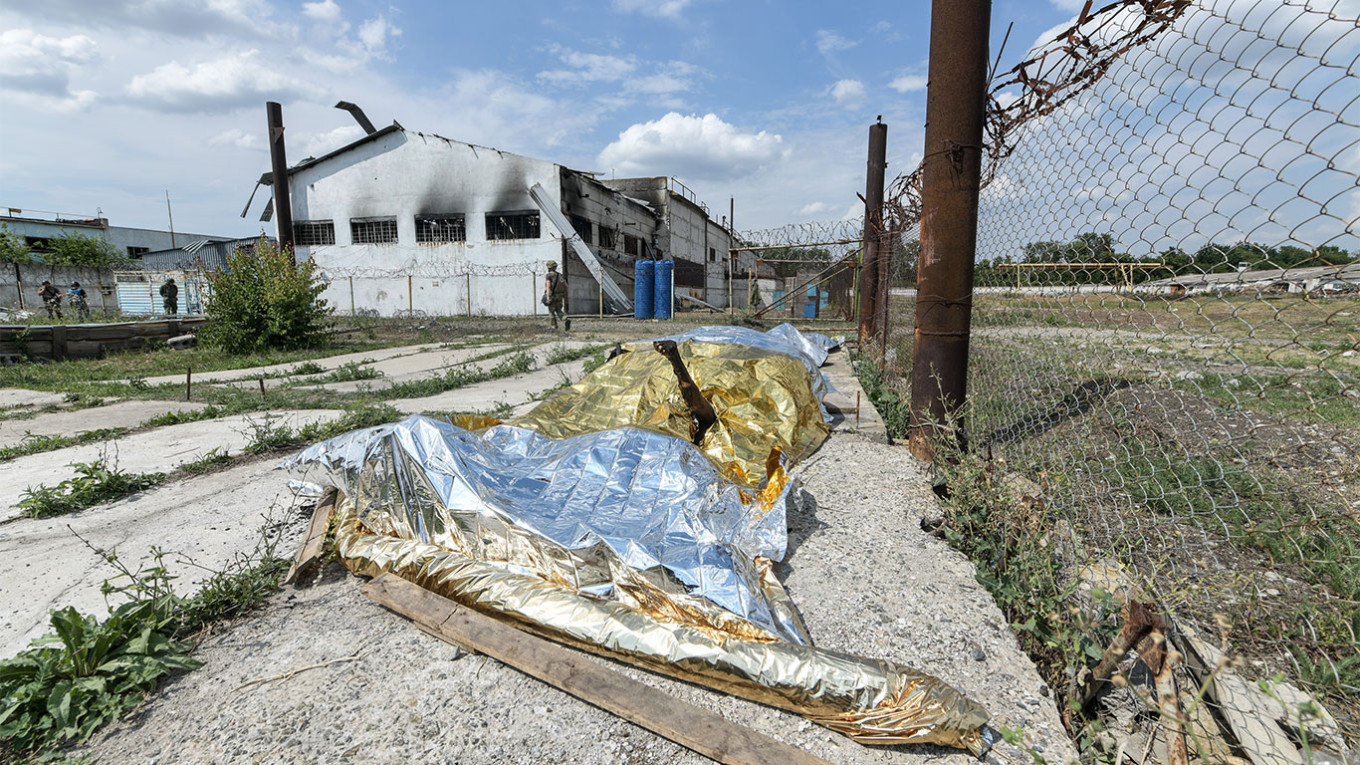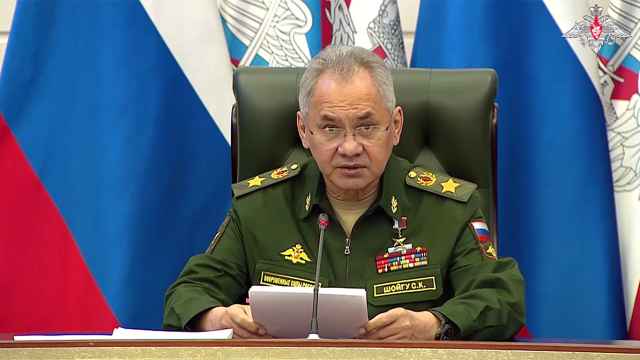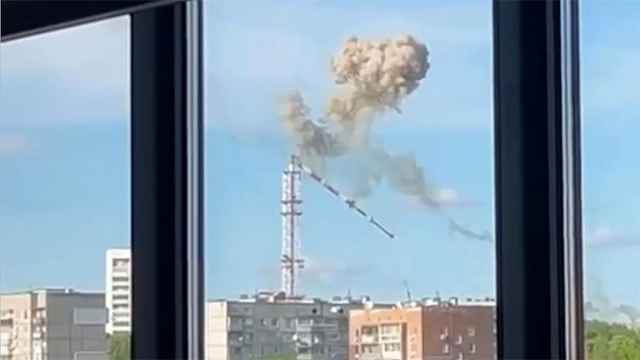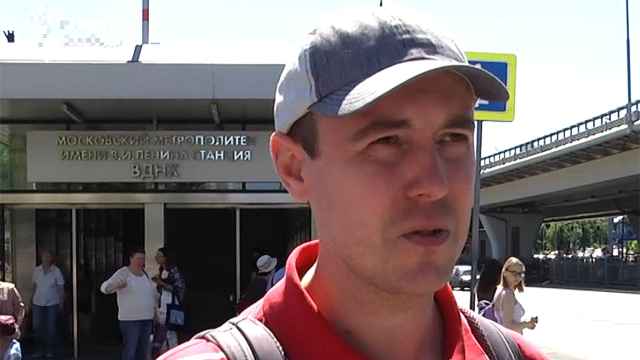A deadly blast at a prison in occupied eastern Ukraine last year, which Kyiv and Moscow blamed on each other, was not caused by Ukrainian HIMARS rockets, United Nations investigators have determined.
On July 29, 2022, at least 51 Ukrainian prisoners of war died in the bombardment of the Moscow-controlled Olenivka jail in the eastern Donetsk region.
Russia and Ukraine have both accused each other of being behind the attack.
In a report published Wednesday, investigators with the UN Rights Monitoring Mission in Ukraine said they were continuing to investigate the explosions, stressing that more information was needed to establish the precise circumstances and clearly attribute responsibility.
However, they said, it was clear that "the explosions were not caused by HIMARS rockets launched by Ukrainian armed forces."
"The degree of damages to the walls, ceiling, roof and windows of the barracks, the condition of the bunk beds inside, the size of the residual crater, and the impact radius are not characteristic of impacts by HIMARS ammunition," they said.
The UN human rights agency's mission, which has been present in Ukraine since 2014, has not had access to the penal colony, but said it had reached its conclusions following interviews with more than 50 witnesses and survivors, as well as analysis of video and photographic footage.
"Even a single HIMARS rocket would likely have caused damage and destruction of the barracks and surrounding area of a significantly larger and more severe scale," the report said, pointing out that witnesses also described "hearing multiple explosions."
In addition, the investigators said that video and photographic footage from the destroyed barracks "appeared to show a point of impact on the interior of the western wall and two possible points of penetration through the roof."
"While the precise type of weapon and its point of origin could not be determined, the pattern of structural damage appeared consistent with a projected ordnance having traveled with an east-west trajectory," the report said.
The investigators called on Moscow to provide independent monitors access to the penal colony.
When the blast happened, the Olenivka colony was holding thousands of Ukrainian PoWs, including members of the Azov battalion, who defended the Azovstal steel works in Ukraine's port city of Mariupol before surrendering to Russian forces.
A Message from The Moscow Times:
Dear readers,
We are facing unprecedented challenges. Russia's Prosecutor General's Office has designated The Moscow Times as an "undesirable" organization, criminalizing our work and putting our staff at risk of prosecution. This follows our earlier unjust labeling as a "foreign agent."
These actions are direct attempts to silence independent journalism in Russia. The authorities claim our work "discredits the decisions of the Russian leadership." We see things differently: we strive to provide accurate, unbiased reporting on Russia.
We, the journalists of The Moscow Times, refuse to be silenced. But to continue our work, we need your help.
Your support, no matter how small, makes a world of difference. If you can, please support us monthly starting from just $2. It's quick to set up, and every contribution makes a significant impact.
By supporting The Moscow Times, you're defending open, independent journalism in the face of repression. Thank you for standing with us.
Remind me later.






